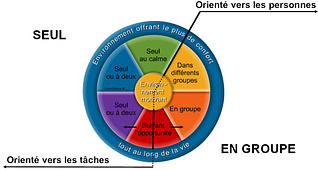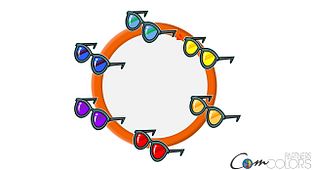

Welcome to this journey where you will discover your personality and the personality of others.
Self-discovery is a journey where we discover the aspects of ourselves. We are diverse because we have within us a history, an education, experiences, emotions and a type of personality. Our personality type is different from the other components that make us who we are because we share it with other people. Personality types are measurable, defined, precise and explain our repetitive behaviors in the positive as in the negative. They reveal our potentials, our ways of working, our motivations and our behaviour under stress. They shed light on our friendships and our relationship difficulties.
Knowing our personality type and understanding that of others has a strong impact on ourselves and in our relationships. We can finally understand our inner conflicts between what we think we should be and what we can’t help but be (our personality type). We can also understand that others do not act against us but to satisfy a motivation which we did not know existed before this training.
Understanding your personality type gives you real permission to allow yourself to be who you are!
Contenu Parcours












Notes et Avis



